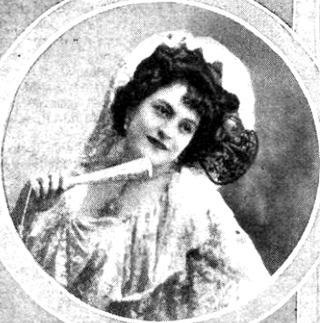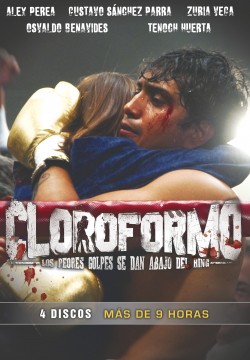
Mario Fortino Alfonso Moreno Reyes, known by the stage name Cantinflas, was a Mexican comedian, actor, and filmmaker. He is considered to have been the most widely accomplished Mexican comedian and is celebrated throughout Latin America and in Spain as a popular icon. His humor, loaded with Mexican linguistic features of intonation, vocabulary, and syntax, is beloved in all the Spanish-speaking countries of Latin America and in Spain and has given rise to a range of expressions including cantinflear, cantinflada, cantinflesco, and cantinflero.

Insurgentes is a station on the Line 1 of Mexico City Metro. It is located within the Glorieta de los Insurgentes at the intersection of Avenida de los Insurgentes and Avenida Chapultepec in Mexico City's Cuauhtémoc borough, close to the Zona Rosa shopping and entertainment district and the Colonia Roma, two of the most iconic neighborhoods in the city. In 2019, the station had an average ridership of 65,134 passengers per day, making it the 12th busiest station in the network.

Avenida de los Insurgentes, sometimes known simply as Insurgentes, is the longest avenue in Mexico City, with a length of 28.8 km (17.9 mi) on a north-south axis across the city. Insurgentes has its origins in what was during the early 20th century known as the Via del Centenario which ran from city centre to the southern suburbs.

Carlos Rivera Guerra, better known as Carlos Rivera, is a Mexican singer. He rose to fame by winning the third generation of La Academia. Rivera has released four studio albums and participated in six theatre productions.
Events in the year 1994 in Mexico.

Daniel Giménez Cacho is a Spanish-born Mexican actor and Ariel award winner, best known for portraying Tito the Coroner in Cronos (1993) and We Are What We Are (2010).
Arturo Castro Rivas Cacho was a Mexican character actor who was often credited and nicknamed as "El Bigotón," due to his distinctive mustache.

Zuria Vega is a Mexican actress and singer.
Flavio Medina is a Mexican actor.

Sofía Sisniega is a Mexican actress, best known for her role as Sofia López-Haro in the 2013 Mexican adaptation, Gossip Girl: Acapulco.
Santo vs The Clones is a 2004 Cartoon Network Latin American original animated series consisting of five short episodes, which were aired every Wednesday nights at 8:00 PM in Mexico, and also in another Latin American countries. It's created by Carlo Olivares Paganoni, a filmmaker and advertising worker, but also a cartoonist who already made the local Cartoon Network pilot Bobots; he wanted to pay tribute to the legendary defunct Luchador wrestler enmascarado and film actor Rodolfo Guzmán Huerta, better known as El Santo. Finally, Carlo hired for this show as developer El Hijo del Santo.

María Conesa, also known as La Gatita Blanca, was a Spanish-born Mexican stage, television, film actress and vedette. She was one of the principal stars of the Revue and Vaudeville in México and Latin America in the early 20th century.

Que te perdone Dios... yo no is a Mexican telenovela produced by Angelli Nesma Medina for Televisa. It is the remake of the telenovela Abrázame muy fuerte, produced in 2000.
Cita con la muerte is a Mexican telenovela produced by Televisa for Telesistema Mexicano in 1963.

Emilio Osorio Marcos is a Mexican actor and singer. He is the son of Mexican producer Juan Osorio and Cuban-Mexican singer and actress Niurka Marcos.

Mi marido tiene familia, also known as Mi marido tiene más familia for the second season and stylized onscreen as Mi marido tiene + familia, is a Mexican comedy telenovela that premiered on Las Estrellas on June 5, 2017 and ended on February 24, 2019. Produced for Televisa by Juan Osorio and Roy Rojas and created by Héctor Forero López and Pablo Ferrer García-Travesí, based on the South Korean series My Husband Got a Family written by Park Ji-eun and produced by KBS. It stars Zuria Vega, Daniel Arenas, Diana Bracho and Silvia Pinal.

Silvia Pinal, frente a ti is a Mexican biographical television series directed by Carla Estrada and Mónica Miguel based on the life of the Mexican producer and actress Silvia Pinal. It stars Itatí Cantoral as the titular character. The series premiered on Las Estrellas on 24 February 2019 and ended on 22 March 2019.

Eugenia León is a Mexican singer. In 1985, she won first place at the prestigious OTI Festival in Seville, Spain with the theme "El Fandango Aquí" by Marcial Alejandro. A winner of the Latin Grammy Lifetime Achievement Award, she has had a career spanning more than 35 years and 26 recorded albums, of which several million copies have been sold. She has performed in some of the most important venues in Mexico, such as the Palacio de Bellas Artes, the Auditorio Nacional, the Sala Nezahualcóyotl, the Teatro de la Ciudad, and the Cervantino Festival.

Cloroformo: Los peores golpes se dan abajo del ring, or simply Cloroformo is a Mexican sports boxing drama television series created by Gustavo Loza, and produced by Adicta Films for Televisa Networks. The series consists of 13 episodes of one hour and is stars Álex Perea, Gustavo Sánchez Parra, Zuria Vega, Osvaldo Benavides, and Tenoch Huerta. It premiered on 12 March 2012 on Televisa Deportes Network, and on 22 March 2012 on Golden Latin America. Although Televisa Deportes Network authorized the series for a second season, the production of the second season of the series was never done.

Las pelotaris 1926 is a Mexican streaming television series created by Marc Cistaré, and produced by The Mediapro Studio. The series follows Chelo, Idoia and Itzi, three basque pelota players who struggle to fulfill their dreams during the 1920s. David Chocarro, Alex Onieva and Marco de la O also star. It premiered on Vix+ on 10 March 2023.




















